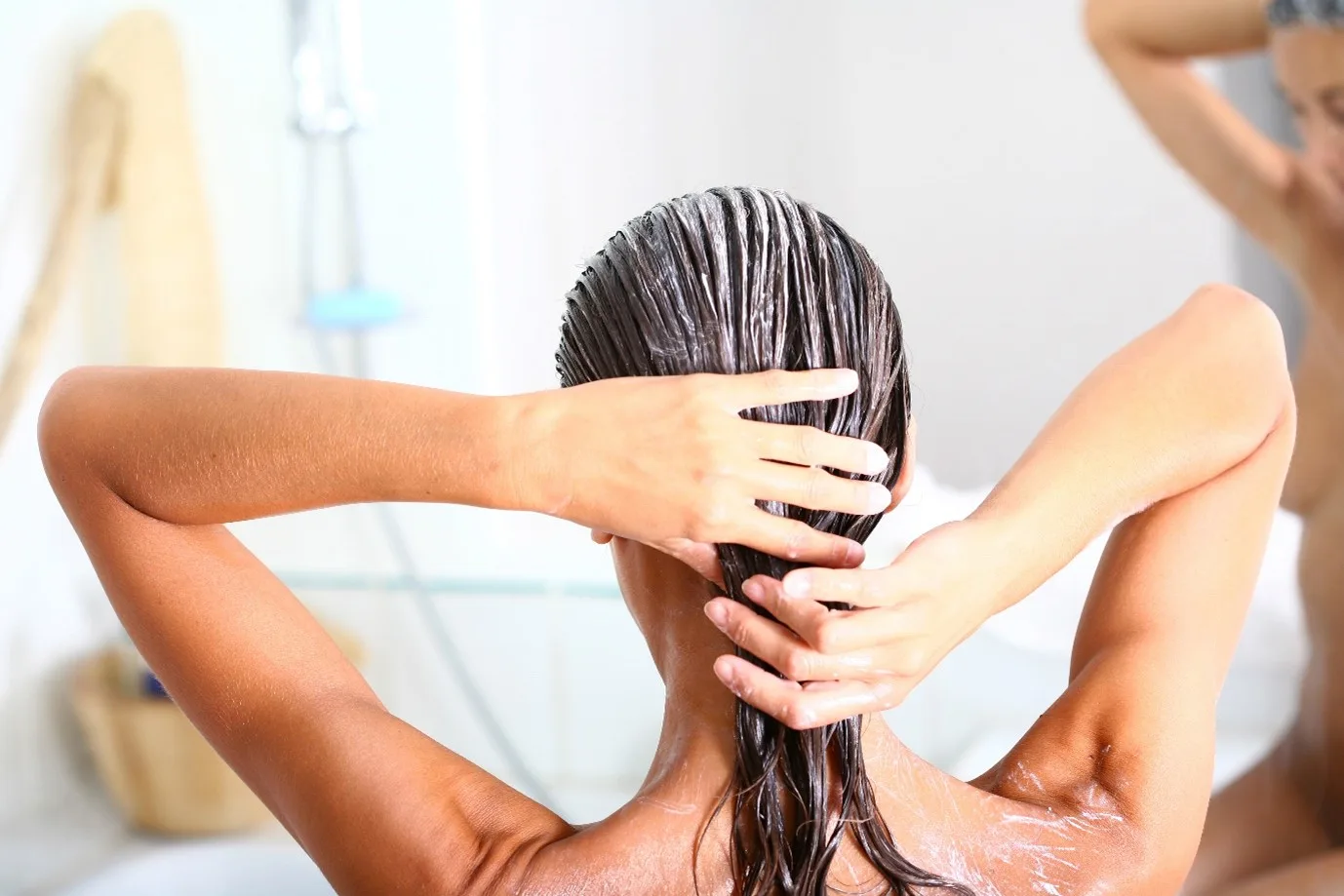HAIR MASKS FOR DANDRUFF
Can the use of hair masks be a solution for your dandruff woes?

If you’ve ever suffered from a bout of dandruff, you know how troublesome and annoying it can get. It’s not just the white flakes on the shoulder, you don’t want to be that person who’s sitting and scratching their head in front of the boss.
Hair mask is just a fancy way of referring to some form of treatment for your hair and scalp. You can find packaged hair masks in the market, but most people use ingredients found in their kitchen to make these dandruff home remedies. This helps bring a natural flavour to your hair care, with no chemicals added. The trick with using a hair mask for dandruff is to attack the underlying cause of dandruff.
What is dandruff?
Before you can think of using a hair mask for dandruff and itchy scalp, or even a piedra scalp, it is important to understand what dandruff is and the reasons for it breaking out on your scalp.
Dandruff is a scalp condition that is caused by a naturally occurring fungus known as Malassezia Globosa. If for some reason your scalp starts producing excess amounts of sebum or oil, the fungus begins to expand and feeds on this sebum to create oleic acid. Almost 1 in 2 people around the world react to this process, and break out into an itchy scalp, red scaly skin, and white-yellow flakes of dead skin cells, which we know as dandruff.
The sebum is produced by sebaceous glands, which are found in higher density on your scalp. A disruption in your sebum production can be due to hormonal changes, weather fluctuations or even stress. Sometimes this is beyond our control, but if you want to figure out how to remove dandruff with hair masks you need to deal with the reasons behind it. It is also important to differentiate between white piedra vs dandruff, because if you have white piedra on scalp you will require a medicated shampoo not a hair mask.
Hair mask for dandruff
To make the optimal use of a hair mask, you should look at the base ingredients that can impact dandruff and concoct something based around that. It is important to note that most of these hair masks don’t have scientific backing and should be approached with extreme caution.
Neem –
This plant is said to be nature’s solution to dandruff, amongst having other benefits. It contains anti-fungal, anti-inflammatory, and anti-bacterial properties that can offer instant relief from itchiness and discomfort. It is also said to promote hair growth and strengthen hair follicles. Thus neem might the ideal ingredient to make a hair mask for dandruff and hairfall.
You can create a hair mask by grinding neem leaves and adding honey to it.
Apply it to your hair for 30 minutes and then wash with a gentle shampoo. Another popular hair mask is neem, crushed fenugreek seeds and yogurt. You can add lemon juice to it as well. Applying this pasty hair mask can help to moisturise and calm down your itching. Neem oil also works as a hair mask. Combining it with a carrier oil like coconut and applying a heated mixture to your hair can help to alleviate your dandruff condition. You can leave this for 30 minutes or even overnight, making sure that you wash thoroughly after.
Aloe Vera –
This gooey and cooling gel has found its way into almost every hair and skin care product. It brings moisturising properties to soothe your itchiness and restore shine to your hair. It contains enzymes, fatty acids and vitamins that have an anti-inflammatory effect on your scalp. It can also clear any sebum build-up and strengthen the hair.
The great thing about this plant is that you can use aloe vera directly as a hair mask for dandruff and itchy scalp. You can apply it and leave it in for the whole day. You can also add honey and maybe garlic juice to aloe vera before applying it to your hair. This can moisturise and get rid of the excess oil on your scalp. Massage it in, leave it for about 20-30 minutes and then wash with a gentle shampoo. Another hair mask people use is aloe vera, honey and apple cider vinegar, that can break down the oil and get rid of the dandruff causing germs. It can instantly soothe your itchiness. Apply, keep it for about 15 minutes and then wash thoroughly.
Lemon Juice –
Packed with vitamin C and essential acids, lemon juice can have a marked effect on clearing the excess oil found on your scalp. It can eliminate this problem and also helps to regulate your scalp pH levels. It contains antioxidants and anti-microbial characteristics that can unclog your hair follicles and keep the germs at bay.
The most popular hair mask for dandruff is lemon juice, yogurt and honey. Using this combination can help to moisturise and calm down scalp itching. Apply the mixture to your hair and leave it for 30 minutes. Wash with a gentle shampoo after. You can also use lemon juice and aloe vera, which clears off the oil build-up and prevents your scalp from drying out. Another hair mask can be created by combining lemon juice and eggs, which activates enzymes to get rid of the dandruff causing germs. Apply it for 20-30 minutes, washing with cold water and a shampoo.
Fenugreek seeds –
Commonly known as Methi, fenugreek seeds contain anti-fungal properties that can prevent the growth of the dandruff causing microbes. They also contain proteins and vitamins that help with strengthening the hair strands and promoting growth.
To use fenugreek seeds, you need to first soak and grind them up. You then add coconut oil to create a paste out of it. Apply this to your hair and leave it for about 30 minutes. Wash thoroughly with a shampoo after. You can replace coconut oil with lemon juice as well. A more popular option is to use fenugreek seeds and yogurt. Applying this mixture can cleanse your scalp, calm down the itching and get rid of any germs. Ensure that you rinse it out thoroughly.
Apple Cider Vinegar –
This is a strong acidic substance used in salad dressings, that can also be used as a disinfectant. It contains strong anti-fungal properties and is anti-inflammatory in nature. It is rich in vitamins, minerals and live cultures that can possibly help with the health of your hair and scalp. Using this ingredient can also help to maintain your scalp pH levels.
Create a mixture of apple cider vinegar and lemon juice. Apply this to your head for 15-20 minutes and then wash with a shampoo. This can clean your scalp and reduce any itching sensations. You can also create a hair mask from apple cider vinegar and aloe vera, that you should apply for 10-15 minutes before washing. This can clear out the dead skin cells on your scalp and unclog the hair follicles, while having a moisturising effect. A simpler hair mask is to add honey to apple cider vinegar and apply for 10-15 minutes. This can moisturise your hair and get rid of the dandruff causing germs. You can add olive oil to this if required.
Using a hair mask for dandruff can work for you, but you need to be careful with the quantities that you apply. If you don’t have the balance right, it can end up making your problems even worse as some of these ingredients can be quite harsh. You should always do a patch test on some part of your body, to make sure that you don’t have an allergic reaction to any of the ingredients.
It is also possible for the dandruff to reappear as the hair mask might have been ineffective for you. In this scenario if you need an easier dandruff solution and are rushed for time, you should try products like the Head and Shoulders Neem that uses the bounty of nature to keep your scalp clean and free of dandruff. Or try the Head and Shoulders Lemon Fresh that is gentle enough for everyday use and leaves you with dandruff free hair.



